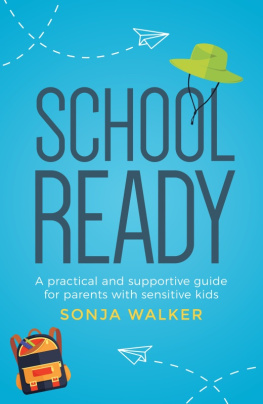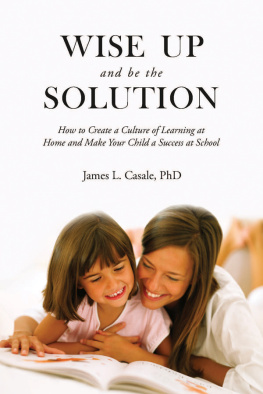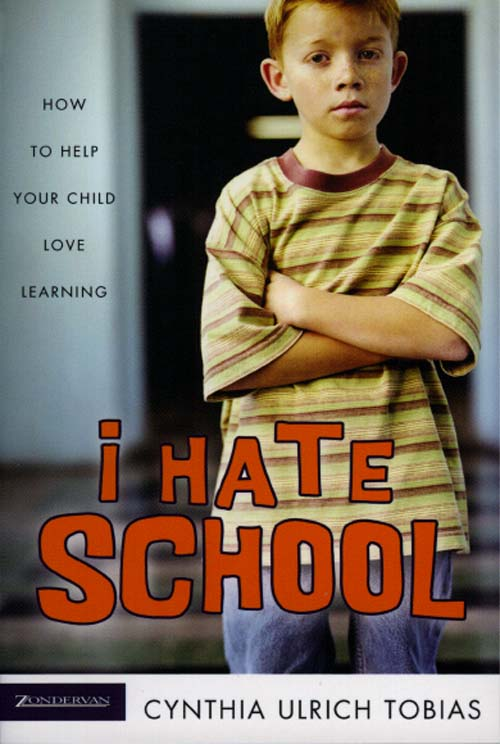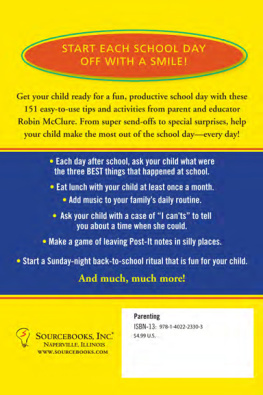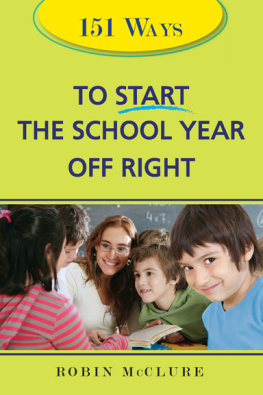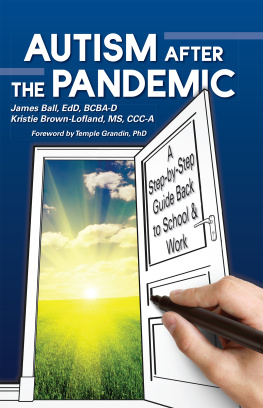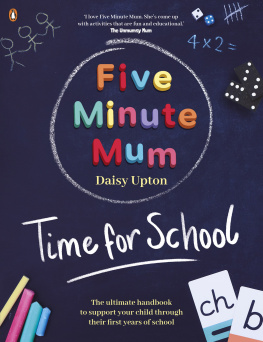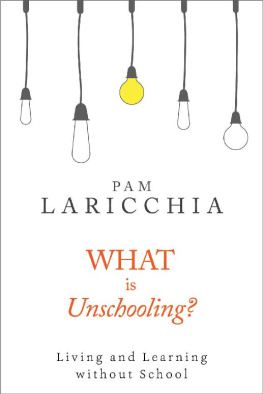Title Page
SUPPORT YOUR CHILD WITH LITERACY
In Their First Year at School
by
Pam Larkins
Publisher Information
Support Your Child With Literacy
published in 2011 by
Andrews UK Limited
www.andrewsuk.com
This book is sold subject to the condition that it shall not, by way of trade or otherwise, be lent, resold, hired out or otherwise circulated without the publishers prior written consent in any form of binding or cover other than that in which it is published, and without a similar condition being imposed on the subsequent purchaser.
Copyright 2012 Pam Larkins
The right of Pam Larkins to be identified as author of this book has been asserted in accordance with section 77 and 78 of the Copyrights Designs and Patents Act 1988.
Introduction
The first day at school is the day when an adventure of life-long learning begins and with a positive attitude your child will learn all the skills needed to equip them for adult life. The first year in school sets down the building blocks upon which all other learning takes place. Supporting your child at home helps to maintain a positive attitude and reinforces the learning that is happening at school. This book, one of a series of four, is written by a mother and experienced teacher, and outlines the techniques used in school in Literacy, suggesting ways that you can help with learning at home, as well as providing web links to interactive activities.
The First Day at School
One of the most important events in a childs life is their first day in school. If you have prepared your child well they should find it exciting and not feel too anxious. You will have given them some idea about the school day and routines so they know what to expect. By arriving at school in good time they will have a chance to settle before school officially begins.
This is the day when an adventure of life-long learning begins and with a positive attitude your child will learn all the skills needed to equip them for adult life. By building a partnership with the school and supporting your child at home you will be giving your child the opportunity to develop to their full potential.
Remember that every child is different and not everyone can excel at everything. Recognise that your child will fail sometimes but help your child to understand that we all make mistakes and we learn through them. Always praise the things they do well and dont dwell on things that are not a great success. However, always listen to your child and reassure them that you will help to solve any problems - whether academic, behavioural or emotional. It is essential that they know they should share any worries or concerns with their teacher, parent or carer and that problems will always be resolved.
What Subjects Will my Child Learn at School?
Although government initiatives will change from time to time there are certain subject areas that children will always cover. These include
- English
- Maths
- Science
- Design and technology
- Information and Communication Technology (ICT)
- History
- Geography
- Art and design
- Music
- Physical education
- Religious Education (RE)
- Personal, Social and Health Education (PSHE) & Citizenship
This book focuses on Literacy [English] while other books in the series cover the remaining subjects.
The government recognises the importance of the role a parent plays in their childs education. Helping your child at home can boost their achievement and many skills such as reading and counting are fundamental to later learning. Advice and resources to help you support your child can be found at: http://www.direct.gov.uk/en/Parents/Schoolslearninganddevelopment/HelpingYourChildToLearn/index.htm
Why is Literacy Important?
Literacy is fundamental to all learning at school and being able to function as a citizen in society. It is more than the ability to merely read and write because it enables you to think and apply your knowledge in one area to another. Reading is the primary source of gathering information and being able to comprehend what you have read is important in keeping yourself safe and allowing you to continue learning and achieve goals.
We live in an ever changing world with science and technology impacting upon our life every day. It is a world so complex that we need to have some proficiency in reading and writing to survive.
Sometimes this will be referred to as English and will include the subjects of handwriting, spelling, reading and writing. It also includes the development of speaking and listening skills. Some lessons are devoted to these subjects but children also develop them when learning about other subjects such as Geography, History or Science.
Speaking and Listening
Speaking and listening are crucial skills at the very heart of learning. Children need to be good listeners, taking in information heard as well as being able to communicate confidently. Parents are a childs first teachers because even babies understand the rules of communication that begins with facial expressions and move on to words.
Research has found that one of the most important factors affecting a childs achievement is communication with parents. This is the way that children find out about the world. Parents are teaching their children to communicate from the time a baby is born, by gestures, speaking, chatting, singing, commenting on what a child has done and by asking questions.
It is important that parents and carers make time to talk to their child and encourage a child to respond, listening patiently while giving your child time to finish talking, asking questions to elicit more information and develop understanding. They should be good role models, teaching children to speak clearly, in sentences and making eye contact with the person to whom they are talking.
Always respond in some way when your child says something. Ask questions so they know you have been listening or make relevant comments and responses. If they say something incorrectly reply in a way that gives them the correct sentence Yes, the postman knocked loudly on the door didnt he?
The time you spend talking and listening to your child will reap huge benefits in later years because you will have built their confidence by demonstrating how important they are to you.
Talk about toys, food, television programs, special events such as Christmas or birthdays, shopping or outings made such as a trip to the park. Sing nursery rhymes and simple songs, especially those with actions which teach children about sound patterns and how to have fun with words. Read books in which children will meet new things to discuss and extend their vocabulary.
Play language games in which they have to listen carefully, to instructions or sounds. Playing sound lotto where they have to match a picture to a sound heard helps them to focus their listening skills. Games like I spy can be played once a child has begun to learn their sounds. Talk to relatives on the telephone or make up stories. Extend their vocabulary by giving choices Do you want to use the red crayon or the blue one?
When your child arrives home from school ask open ended questions that require more than a yes or no answer. If you ask what did you enjoy most today? you can encourage children to share more information by asking further questions.
Phonics
Teachers now put a greater emphasis on phonics than they did in past years. Today Synthetic Phonics is taught and this knowledge is the foundation for reading and spelling. Synthetic Phonics is usually taught before expecting children to read books for themselves, although it is imperative that parents share books with children from an early age.
Synthetic Phonics is a simple to complex approach in which learners are not expected to work out the alphabetical code for themselves. It immediately teaches how to blend sounds for reading so sat is s-a-t , dog is d-o-g . It ensures children can identify the sounds [referred to as phonemes] all through the word.
Next page

